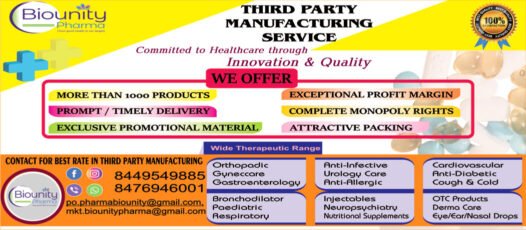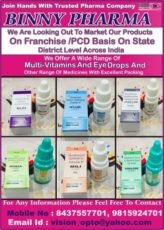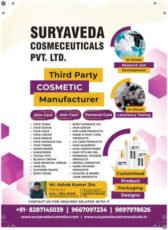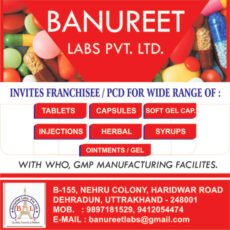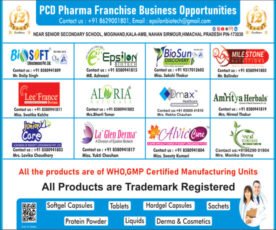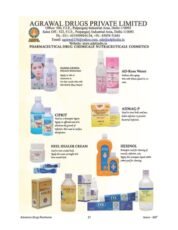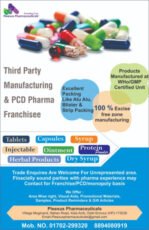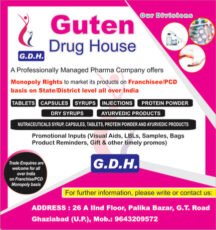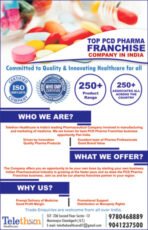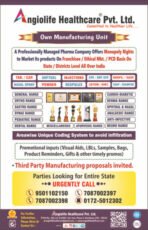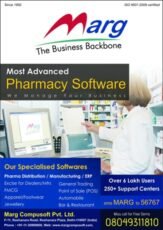DoP to strengthen testing infrastructure for medical devices
Thursday May 19, 2022 at 4:25 pmThe Department of Pharmaceuticals (DoP) is in the process of making a roadmap to strengthen the testing infrastructure for various medical devices to enable a smoother transition to the upcoming national licensing regime. A task force formed in this regard with representatives of the Department of Pharmaceuticals (DoP) and industry is expected to submit its recommendations this month.
According to an official document, the Department of Pharmaceuticals (DoP) held a meeting on April 11, 2022, on the measures to be taken to strengthen of testing infrastructure to enable a smoother transition to future licensing for medical devices under the leadership of S Aparna, the secretary of Department of Pharmaceuticals (DoP).
Following this, the Department of Pharmaceuticals (DoP) constituted a task force under the Standing Forum of Medical Devices Associations to prepare the road map for mapping and augmenting the laboratory resources required under the concerned Medical Device Regulations. The Committee is expected to submit its various recommendations to the Department of Pharmaceuticals (DoP) in May.
The reader must note that in the first half of March 2022, the Department of Pharmaceuticals (DoP) released an approach paper to the National Medical Device Policy, a draft for discussion for various stakeholders, to position India as the actual ‘Diagnostic Capital of the World.’ The National Medical Device Policy envisages multiple developments, including the setting up of the National Institute of Pharmaceutical Education and Research (NIPER)-like institutions for the medical devices sector; The National Medical Device Policy is expected to be valid for ten years, following which the union government of India will revise it.
The National Medical Device Policy is envisaged to bring together the range of interventions of the union government of India has taken into a single coherent policy framework; it will have a focus on quality standards and safety of the medical devices, regulatory streamlining, support to build competitiveness through powerful fiscal and financial aid, infrastructure development, facilitation of Research and Development (R&D) and innovation, human resource development (HRD), and brand positioning. The Department of Pharmaceuticals (DoP) has also released a draft Uniform Code for Medical Device Marketing Practices, a voluntary code laying standards for the promotion, marketing, and sales of the medical devices prohibiting the distribution of gifts or benefits various healthcare professionals.
The National Medical Device Policy reforms were also necessitated by the transition from partial regulation of a few selected medical services to the complete regulation and licensing of all medical devices, which is underway and is expected to be completed by October 2023. It will require more clear articulation in terms of quality assurance and certification, said the Department in the policy document.
According to the Department of Pharmaceuticals (DoP) ’s notification on February 11, 2020, the registration of these medical devices was kept voluntary for 18 months, with effect from April 1, 2020. After this, the registration of all Class A & B devices shall be mandatory within 12 months, and registration of all Class C & D devices shall be required within the first 24 months, after 18 months of the voluntary registration period is over. After that, all medical devices will need to be licensed under the old Medical Devices Rules, 2017 as amended by Medical Devices (Amendment) Rules, 2020, excepting 37 categories of medical devices.
“A wide range of regulatory approvals necessitated by the variety of sciences and industry segments related to the medical devices sector creates high compliance and regulatory burden. The transition period in licensing by the CDSCO is an added challenge as manufacturers have to adjust to new processes over a predetermined time frame,” the Department of Pharmaceuticals (DoP) announced.

